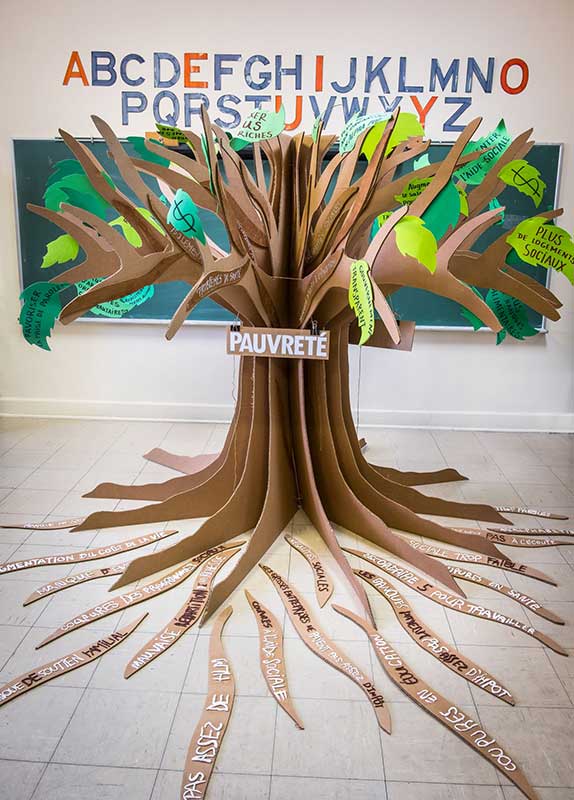
Introduction
Popular literacy groups in Quebec are inspired by, among other things, the awareness-raising approach of Paolo Freire, a Brazilian pedagogue who was very influential in the 1970s on the issue of popular education and popular literacy. In Quebec, the first groups were created around 1980 by citizens. There are currently about 80 of them across Quebec. Popular literacy is a practice that is part of the broader family of Autonomous Popular Education (APE).
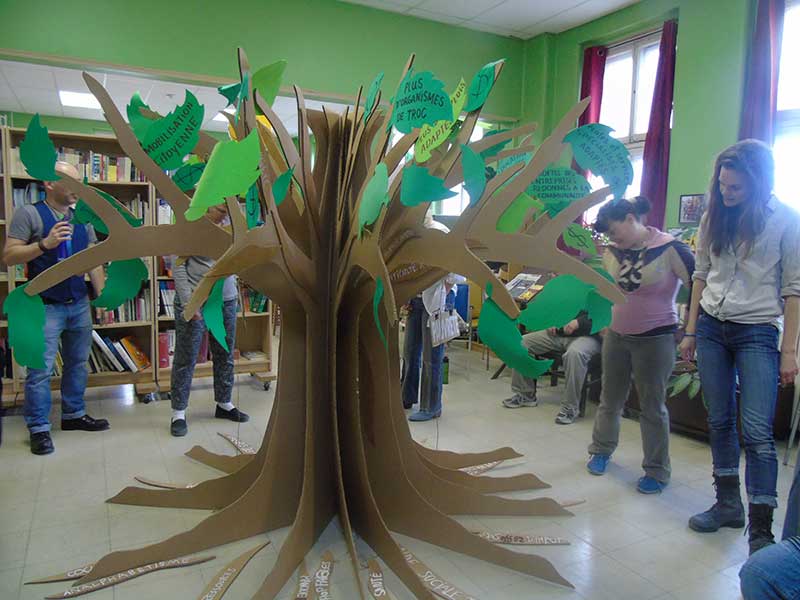
Why use the Problem Tree in research?
In an academic (or other) research context where collaboration with excluded, marginalized, poorly educated or illiterate people is desired, this tool makes it possible to effectively connect with the reality on the ground.
Read more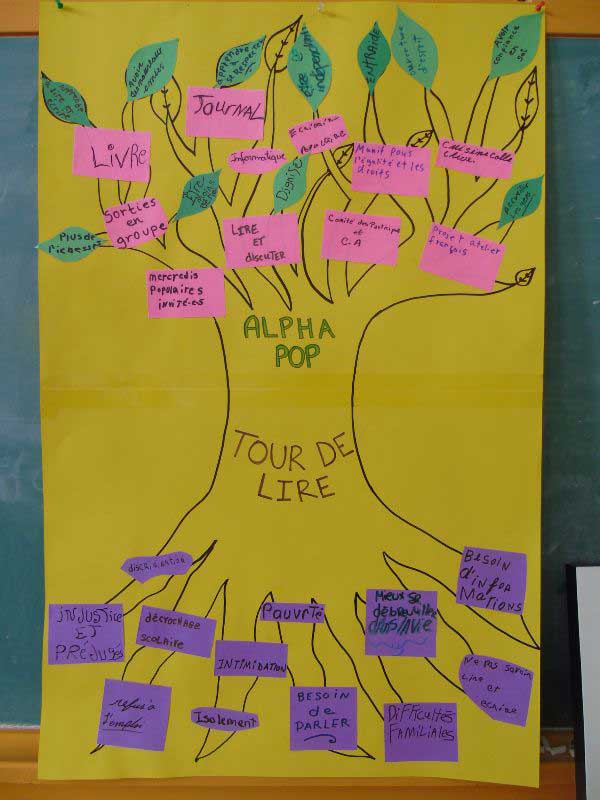
Origin of the REFLECT method and the Problem Tree
This method is inspired by the ideas developed in the 1970s in Latin America by Paolo Freire, who considered adult education as key to development. REFLECT was developed through pilot programmes in Uganda, Bangladesh and El Salvador between 1993 and 1995. It began to be used in Belgium in 2001 and in Quebec in 2011.
Read more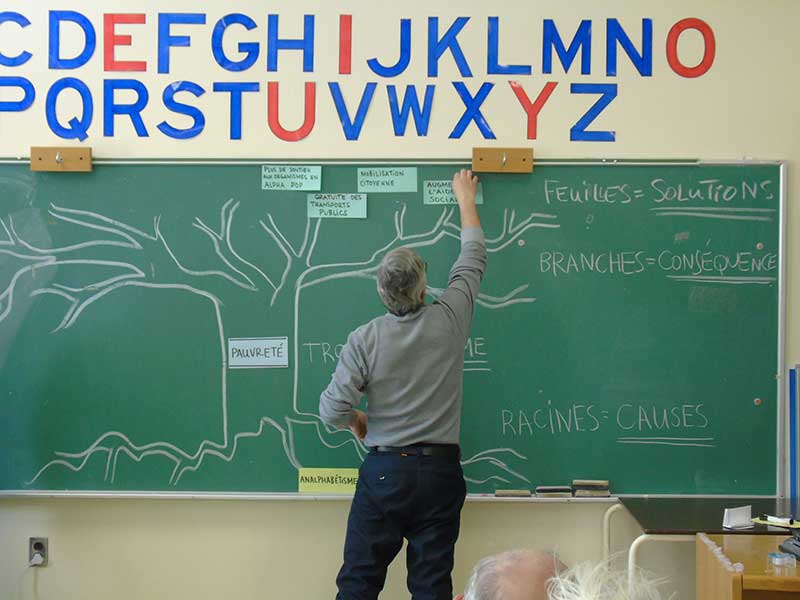
Popular literacy and REFLECT method
The link between the two is very well explained in a training document from the Regroupement des groupes populaires d'alphabétisation du Québec (RGPAQ) entitled Journée d'échanges REFLECT. Each year, training on this approach is offered by the RGPAQ.
Read more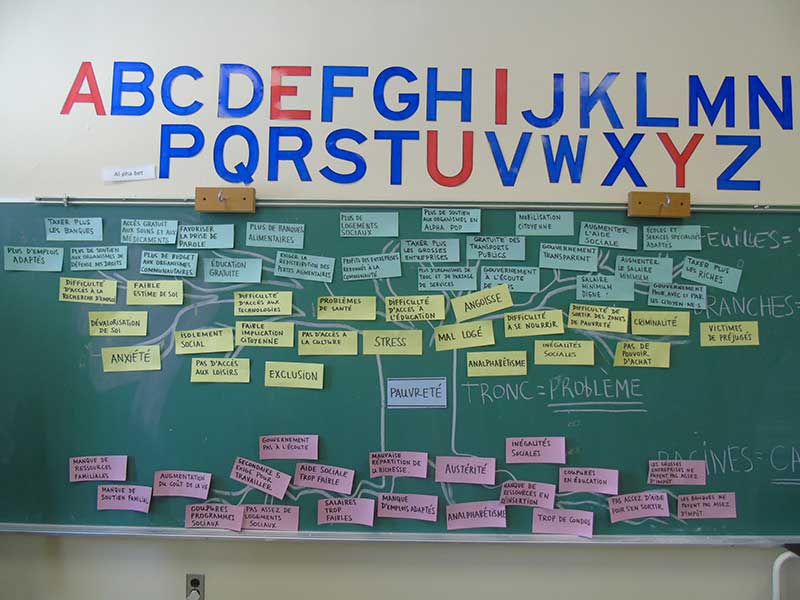
Structure of the Problem Tree
To visually present the structure of the group discussion, we will present our subject in the form of a tree.
Read more